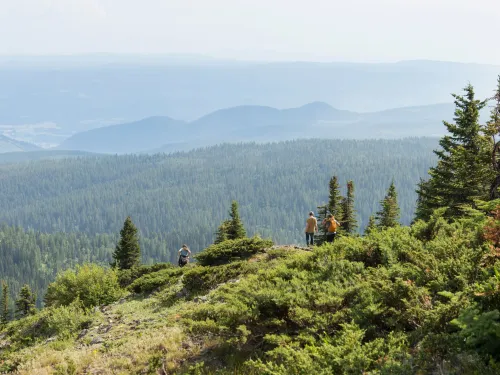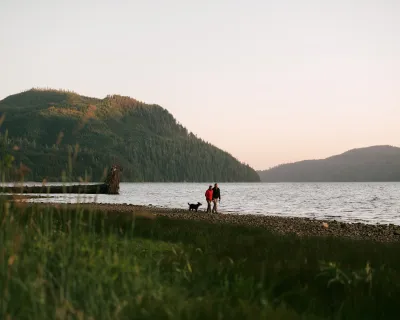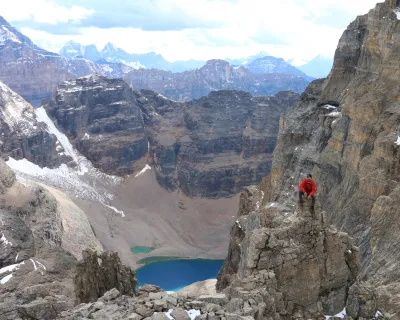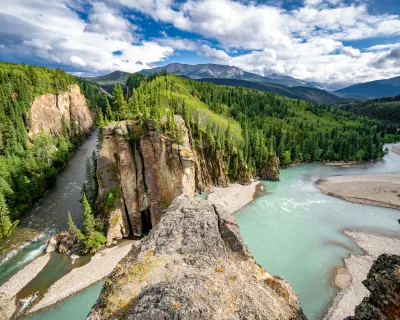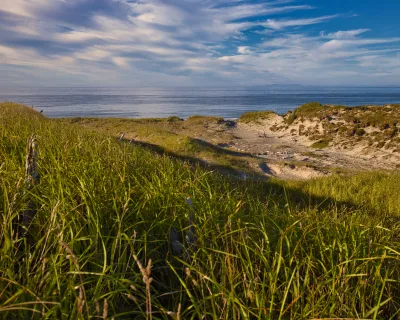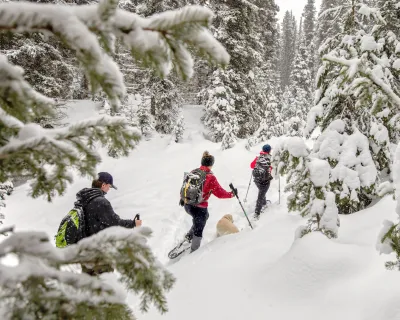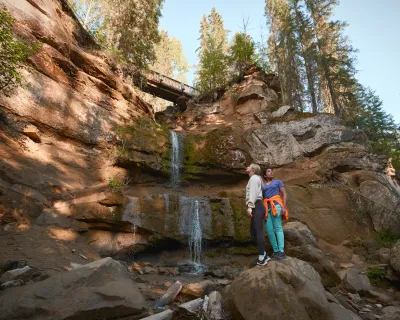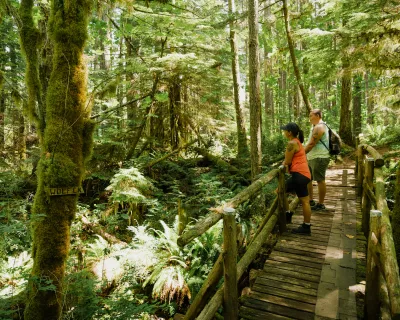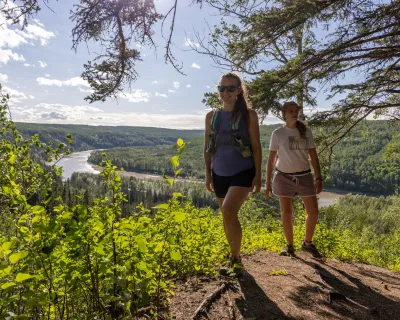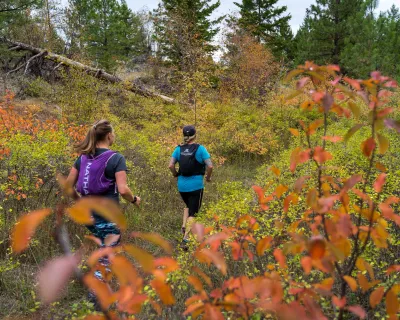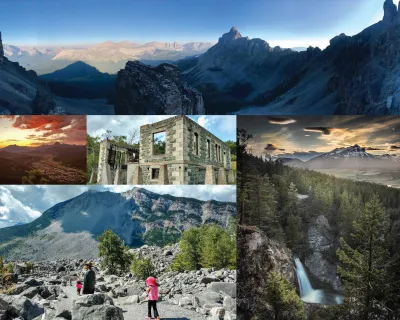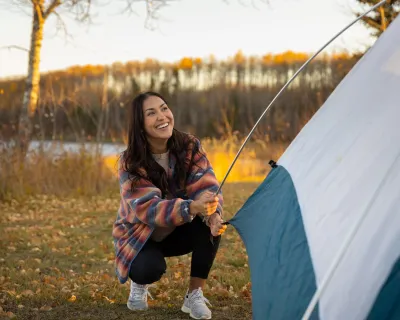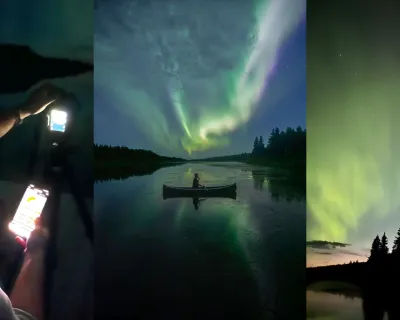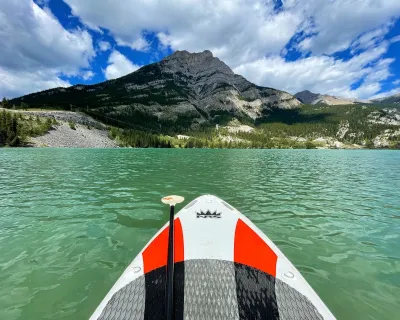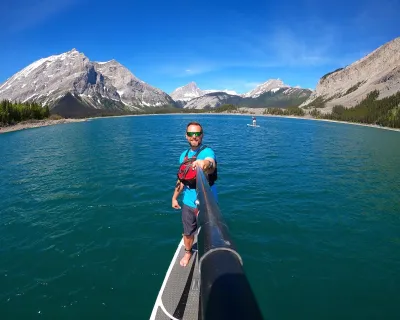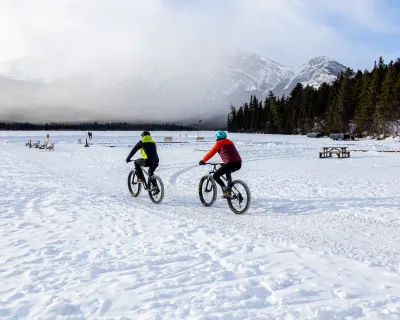Which is best for navigating: phone vs map and compass vs GPS
You're packing for a hike, what do you bring to help you navigate: a phone with your custom navigation apps, a GPS device or a classic map and compass?
It's not a trick question, although "all three" is a potential answer as well (although minimalists may scorn the idea). The question has wound up the outdoor community, including your survivalists, recreational hikers and gadget lovers for years, but the debate remains.
As you plot your next hiking trip, paddling expedition or backpacking adventure, navigation should be top of mind. After all, the number one way to reach your destination is to be able to find it in the first place.
A utilitarian might point out that the best tool in your arsenal is the one you know how to use. But if there's a safer or better tool you could be using, then why not learn that?
So let's see what the experts have to say when it comes to choosing between phone, map and compass and GPS/sat phones.
Phone, compass, GPS: pros and cons
There are lots of opinions out there. You can find plenty of articles, forums and social media posts debating which navigation tool is the best.
To get some clarity, we consulted Bill Sperling, a navigation expert and search and rescue (SAR) specialist in Grand Forks, BC, and Sandra Riches, executive director with BC AdventureSmart.
PHONE: lots of options, easy to use, multi-functional
Let's face it, a smartphone is the most common tool in most people's pockets. And many of us are using it more and more often for our outdoor adventures. It's handy and multi-functional—but it has its limits.
Pros: Before you even reach for a compass app, of course, most of us lean on map applications (Google Maps or Apple Maps) that will keep you on the right course in most but not all places a satellite and wifi reach—with that being a big caveat off the top.
When it comes to the compass apps themselves, "lots of options, easy to use" says Sperling, listing a few of his preferred apps: Gaia, CalTopo, OnX. There's no argument here from most outdoor discussion groups, but there is one major drawback above all else…
Cons: battery life. "GPS kills your phone battery fast," says Sperling, who uses a phone and GPS-enabled smartwatch for recreational day trips.
"We know everyone is going to take their [smartphone], we get it," says Sandra Riches, "However, if you can think of that as your secondary means of communication and really concentrate on your primary device, then you really have your ducks in a row."
"Cell phones don't like the snow, they don't like to be dropped and they have a short battery life."
"If it works... and you can call 911, that's your first means of communication in an emergency, ... if search and rescue can communicate with you on your phone, they will. But we can't go into the backcountry thinking that will work. Let's go in thinking it won't."
GPS DEVICES: accuracy and emergency comms
When you've got a phone with built-in GPS, why use a GPS device? There are several solid reasons.
Pros: the most accurate of the three, GPS provides a "separate system from your communications and camera phone (unless using an inreach/sat messenger, then that's your GPS and emergency communications)," Sperling points out.
Riches adds: "they're meant for the elements, built to last, they're hardy—they're going to take a fall, they can weather a snowstorm—and they'll be there for you in an emergency."
The satellite messenger feature of newer GPS devices means they can call for help even outside of cellular phone range, and that could be well worth it alone if you're planning to be deep in the backcountry.
Cons: Like a phone, it relies on a battery, making it "another thing to charge," says Sperling. Devices can also be a heavy, expensive add-on to your pack.
However, when it comes to emergency communications, weight becomes irrelevant (they can be worth their weight in gold, as the saying goes.)
MAP & COMPASS: no battery required, but some skill
Back in the day, practicing your origami skills by unfolding and refolding a paper map in the passenger seat of the car was a common pastime on road trips.
Nowadays, a paper map is a pretty rare thing to spot, but they do exist and there are good reasons why you might want to use one, along with a good old handheld compass. So why did their use fall so dramatically by the wayside?
Cons: beyond the origami challenge, Sperling breaks it down pretty bluntly: "Using a map and compass requires a lot more skill to use." That alone is an issue but there's more.
find YOUR zen
Sign up for ZenSeekers enews for local culture & outdoor adventure across Western Canada.
"You need visibility in order to find your location and navigate using bearings. Maps get wet, torn and destroyed. You need a different map for every location.
While traveling, that can mean you need a lot of different maps (maps aren't cheap) and they don't get updated without buying a new map."
Pros: "Doesn't run on batteries. Makes it look like you know what you're doing," quips Sperling.
"Those will be foolproof," adds Riches. "North won't be changing too dramatically any time soon."
Backcountry cred aside, the low-tech value of not relying on batteries, satellite or wifi is an obvious plus when you're off-grid for several days.
Upshot? The map and compass is still the backup method of choice for navigation in the backcountry, if you know what you're doing. It's there when all else fails, which—when we're talking technology—might.
Choosing your navigation tools
Without sounding wishy-washy, the choice of whether to use your phone or smartwatch/GPS, a dedicated GPS device or a map and compass comes down to what you plan to do and how you want to do it.
If you're going out for a hike in an established hiking area with marked trails and good wifi coverage for a couple short hours, the old school voyageur kit might be overkill.
However, if you're heading into the backcountry for several days along trails or paddling routes that are remote and span greater distances, relying on one technology alone is definitely not the safest choice. Having multiple navigation tools means that if your phone or GPS dies or your map gets wrecked, you have a backup plan.
And if all three go down, there's always the stars—but that's for another story.
More navigation and trip preparation tips
BC AdventureSmart, which Riches heads up, has a host of excellent online resources for planning and executing your trip. Check out the AdventureSmart website at the beginning of your trip planning, to help guide your efforts. The organization is also hosting a summer outdoor education series, which you can find here.
For those who want to really dig into the art of navigation, BackPacker has an excellent series of how to's on navigation.
Other things to consider:
- If you're in bear country, planning for bear safety is essential
- Grab these three hiking hacks to use every time out
Get out on the trails with ZenSeekers
From three-hour tours to multi-day trips, explore some Alberta and BC hikes that will inspire you to get out adventuring.
